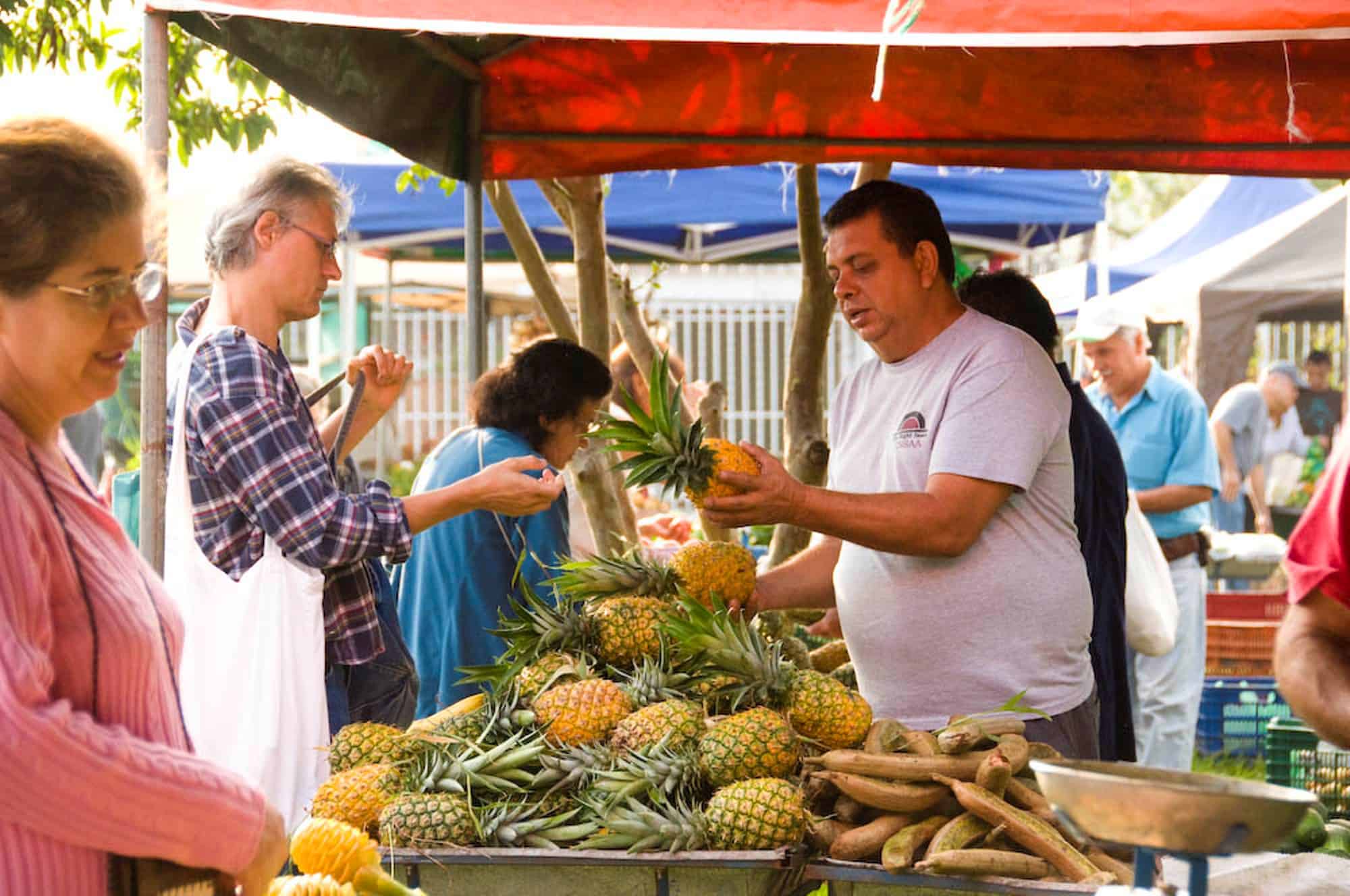While some Costa Rican farmers grapple with potential international free-trade agreements and the ongoing global coffee crisis, a growing number are turning to organic agriculture. These farmers, many of whom had never heard of “organic” farming five years ago, now see it as a lifeline for preserving their rural lifestyle and improving the country’s health and environment.
Nearly 100 small farmers gathered this week in Turrialba, at the Tropical Agricultural Center for Research and Higher Education (CATIE), to share ideas on organic farming. From planting organic pineapples to making compost from heart-of-palm peels, the fourth annual National Meeting of Farmers and Researchers in Organic Production provided a platform for innovation and collaboration.
A Growing Organic Movement
Although organic production still accounts for just 2.2% of Costa Rica’s commercial agriculture, this figure has grown dramatically from 0.18% five years ago, according to Felicia Echeverría of the Ministry of Agriculture’s National Program of Organic Agriculture (PNAO). In 2003, 4,000 Costa Rican farmers were registered with certification agencies. The country’s strong organic standards have gained international recognition, placing it second only to Argentina in Latin America for approval of organic products.
Costa Rica’s organic exports—primarily coffee, bananas, cacao, blackberries, and orange juice—find eager markets in Europe, the United States, Canada, and Japan. However, many small farmers see organic farming as more than a business opportunity.
“Organic farming allows small farmers to maintain their lives in the country,” said Francisco Sibaja, a participant in the CATIE meeting. “It’s beautiful to share our crops and know the food we plant will nourish a family nearby. I don’t view farming as a job; it’s an activity.”
Sibaja and others are working with the Agriculture Ministry to educate the public about the benefits of organic foods, which are grown without chemicals and are said to be better for human health and the environment. However, quality control remains a challenge in Costa Rica.
Challenges and Opportunities in Organic Agriculture
Despite growing interest, supply shortages threaten the success of organic farming. Small farmers often lack the volume to justify transporting products to supermarkets, and many grow as many as 100 different crops on one farm. Forums like the CATIE meeting provide opportunities for farmers to form cooperatives, pooling resources to sell their products in national and international markets.
Without pesticides and herbicides, organic farming is more labor-intensive, often raising costs by 30-40% in grocery stores and 10-30% in farmers’ markets. However, on the international market, organic coffee fetches 30-100% higher prices than conventional coffee, offering a niche market opportunity.
“People who grow organic food don’t want to sell it at higher prices; they want to make it affordable and accessible to everyone,” said Manuel Amador of the Education Corporation for Costa Rican Development (CEDECO).
To address high costs, CATIE is conducting research on organic methods for pest control, fertilization, and crop diversification. While preliminary results from experiments on 36 farms around Turrialba are promising, studies must continue for at least two more years.
“In our research, every day we see more importance in organics,” said CATIE director Pedro Ferreira. “There is a growing market for organics and great interest among indigenous communities to cultivate organic products.”






